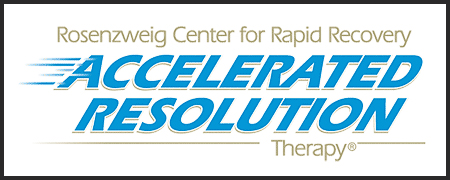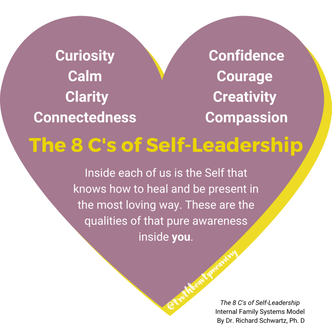Offering Integrative Clinical Services
Specializing in Trauma & DV/Narcissistic Abuse Recovery, Grief Healing,
The Path to Self-Love, & Living as an HSP (highly sensitive person/empath/intuitive)
Adolescents | Adults | First Responders | Helping Providers
Mental Health & Co-Occurring
Cognitive Behavioral Therapy (CBT): Focuses on developing coping skills that target solving current problems and changing unhelpful patterns in cognitions, behaviors, and emotional turmoil. "Our thoughts shape our lives."
Dialectical Behavior Therapy (DBT): Focus is placed on teaching methods to evaluate emotions and reduce maladaptive behaviors. The skills covered are interpersonal communication, distress tolerance, emotion regulation, and mindfulness.
Motivational Interviewing (MI): Focuses on exploring and resolving ambivalence and centers on motivational processes within the individual to facilitate change. Supports change that is congruent with the unique individual.
Transpersonal Therapy: Focus is placed on the spiritual and adds to the deeper and higher aspects of human experience transcending the ordinary and the average.
Existential-Narrative Therapy: Involves listening to the telling/retelling of unique personal stories and the challenges and problems encountered in life to shape new meanings and heal. "You are not what happened to you."
Person-Centered Therapy: Focuses on offering a safe space to cultivate growth, healing, and wellness. Incorporates establishing a therapeutic alliance that focuses on individual strengths and abilities to self-actualize.
Insight-Oriented Therapy: Focuses on gaining an understanding of how personal beliefs, thoughts, feelings, and experiences impact the present state of mind.
Gestalt Therapy: Takes into account the whole person. Focuses on the integration of the parts of the whole, getting in touch with oneself to become more self-aware. "We are more than the sum of our parts."
Dialectical Behavior Therapy (DBT): Focus is placed on teaching methods to evaluate emotions and reduce maladaptive behaviors. The skills covered are interpersonal communication, distress tolerance, emotion regulation, and mindfulness.
Motivational Interviewing (MI): Focuses on exploring and resolving ambivalence and centers on motivational processes within the individual to facilitate change. Supports change that is congruent with the unique individual.
Transpersonal Therapy: Focus is placed on the spiritual and adds to the deeper and higher aspects of human experience transcending the ordinary and the average.
Existential-Narrative Therapy: Involves listening to the telling/retelling of unique personal stories and the challenges and problems encountered in life to shape new meanings and heal. "You are not what happened to you."
Person-Centered Therapy: Focuses on offering a safe space to cultivate growth, healing, and wellness. Incorporates establishing a therapeutic alliance that focuses on individual strengths and abilities to self-actualize.
Insight-Oriented Therapy: Focuses on gaining an understanding of how personal beliefs, thoughts, feelings, and experiences impact the present state of mind.
Gestalt Therapy: Takes into account the whole person. Focuses on the integration of the parts of the whole, getting in touch with oneself to become more self-aware. "We are more than the sum of our parts."
*Internal Family Systems (IFS): See below for more information
*Accelerated Resolution Therapy (ART): See below for more information
Creative Art Therapies (CAT): There are many barriers to vocal expression. Alternative interventions are utilized through creative expressive processes to bridge the gap of solely traditional talk therapy initiatives.
Attachment-Based Therapy: Focus is placed on developing or rebuilding trust and centers on expressing emotions, forming meaningful relationships, and gaining a sense of security. “Taking back power.”
Emotionally Focused Therapy: Focuses on identifying negative interaction patterns that contribute to conflict, identifying negative emotions related to attachment issues, and reframing these issues.
Relational Therapy: Explores relationship patterns to gently uncover and understand them so that healing and shifting can take place, healthier forms of interaction take place, and a new deeper truer self emerges.
Grief Therapy: Focus is placed on processing the loss experience and impact, mourning the loved one's absence, and gaining skills to cope with and respond to the overwhelming waves of grief.
*Accelerated Resolution Therapy (ART): See below for more information
Creative Art Therapies (CAT): There are many barriers to vocal expression. Alternative interventions are utilized through creative expressive processes to bridge the gap of solely traditional talk therapy initiatives.
Attachment-Based Therapy: Focus is placed on developing or rebuilding trust and centers on expressing emotions, forming meaningful relationships, and gaining a sense of security. “Taking back power.”
Emotionally Focused Therapy: Focuses on identifying negative interaction patterns that contribute to conflict, identifying negative emotions related to attachment issues, and reframing these issues.
Relational Therapy: Explores relationship patterns to gently uncover and understand them so that healing and shifting can take place, healthier forms of interaction take place, and a new deeper truer self emerges.
Grief Therapy: Focus is placed on processing the loss experience and impact, mourning the loved one's absence, and gaining skills to cope with and respond to the overwhelming waves of grief.
Emotional Freedom Technique (EFT): Focus is placed on correcting energy disruptions in the body through a sequence of tapping on meridian points combined with specific wordings.
Compassion-Focused Therapy: Focus is placed on increased self-compassion and other compassion to heal internal shame and self-criticism. Helps to restore ideas of safety and reassurance.
Mindfulness-Based Interventions: Involves moment-by-moment awareness of thoughts, feelings, bodily sensations, and the surrounding environment and living with more intention.
Trauma-Informed Approach: An awareness and understanding of the physical, social, and emotional impact of trauma are provided to safeguard against re-traumatization and to respond most effectively to those with a trauma history.
Strength-Based Therapy: Focuses on personal strengths, and the development of new strengths.
Positive Psychology Principles: Emphasizes meaning, deep satisfaction, and building a fulfilling life.
Mind-Body Practices: Behavioral and psychosocial interventions such as mindfulness, meditation, loving-kindness, visualization, breathwork, use of sound and affirmations, body awareness/reflection.
Somatic Experiencing: A holistic therapeutic approach that incorporates the person's mind, body, soul, and emotions in the healing process. It is a modality grounded in the mind-body connection.
Heart-Centered Therapy: Focus is placed on compassion for self, others, and nature. Learning to live from the heart, to be nurturing, and self-loving. To release negative thoughts, emotions, and behaviors.
Compassion-Focused Therapy: Focus is placed on increased self-compassion and other compassion to heal internal shame and self-criticism. Helps to restore ideas of safety and reassurance.
Mindfulness-Based Interventions: Involves moment-by-moment awareness of thoughts, feelings, bodily sensations, and the surrounding environment and living with more intention.
Trauma-Informed Approach: An awareness and understanding of the physical, social, and emotional impact of trauma are provided to safeguard against re-traumatization and to respond most effectively to those with a trauma history.
Strength-Based Therapy: Focuses on personal strengths, and the development of new strengths.
Positive Psychology Principles: Emphasizes meaning, deep satisfaction, and building a fulfilling life.
Mind-Body Practices: Behavioral and psychosocial interventions such as mindfulness, meditation, loving-kindness, visualization, breathwork, use of sound and affirmations, body awareness/reflection.
Somatic Experiencing: A holistic therapeutic approach that incorporates the person's mind, body, soul, and emotions in the healing process. It is a modality grounded in the mind-body connection.
Heart-Centered Therapy: Focus is placed on compassion for self, others, and nature. Learning to live from the heart, to be nurturing, and self-loving. To release negative thoughts, emotions, and behaviors.




